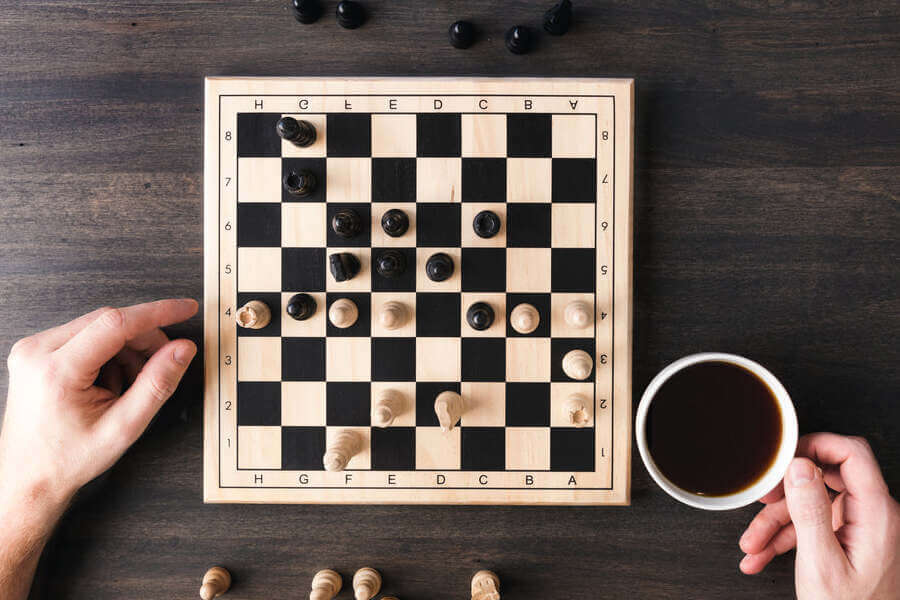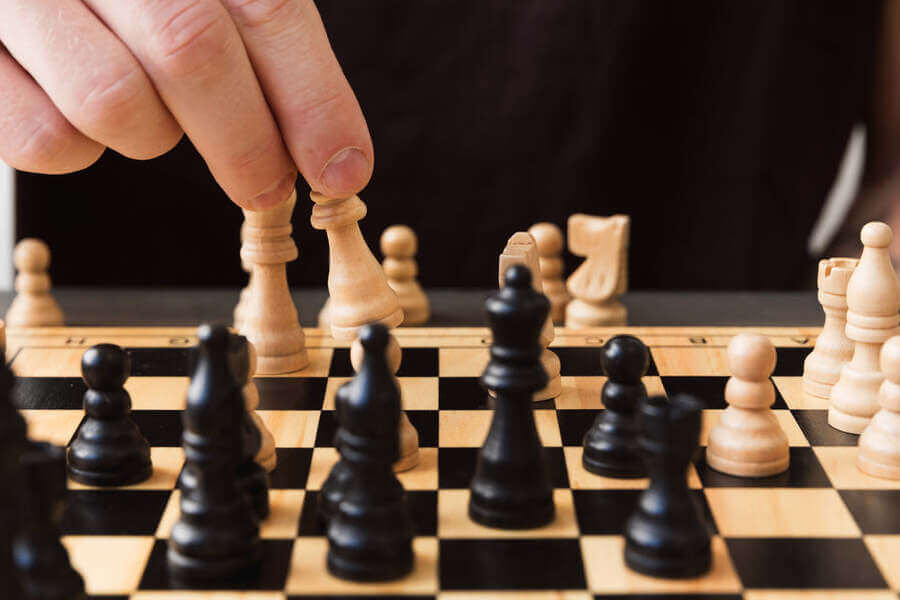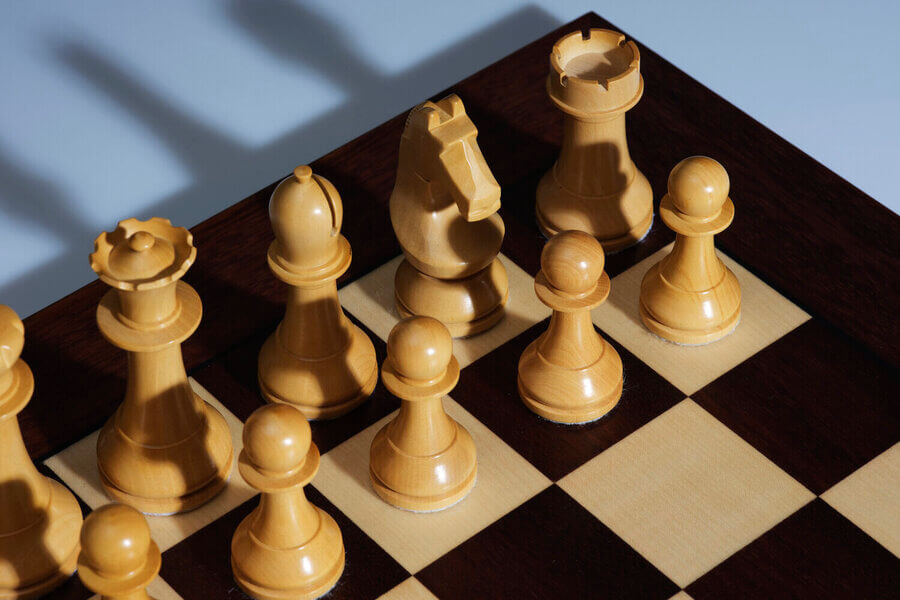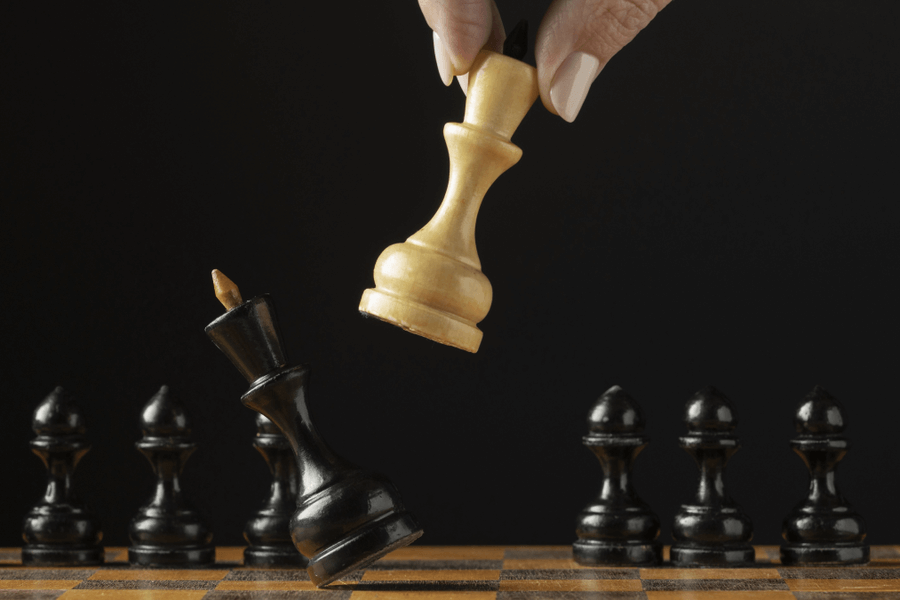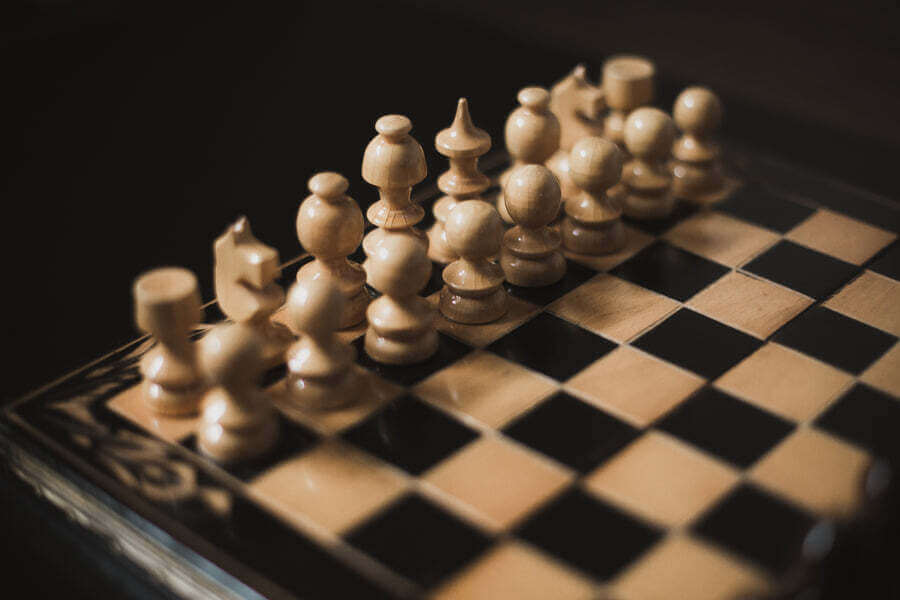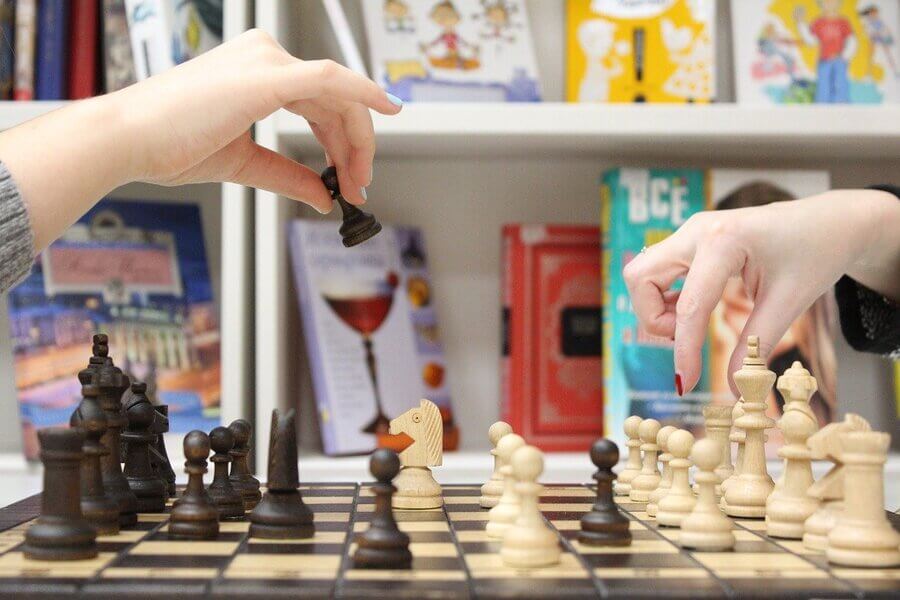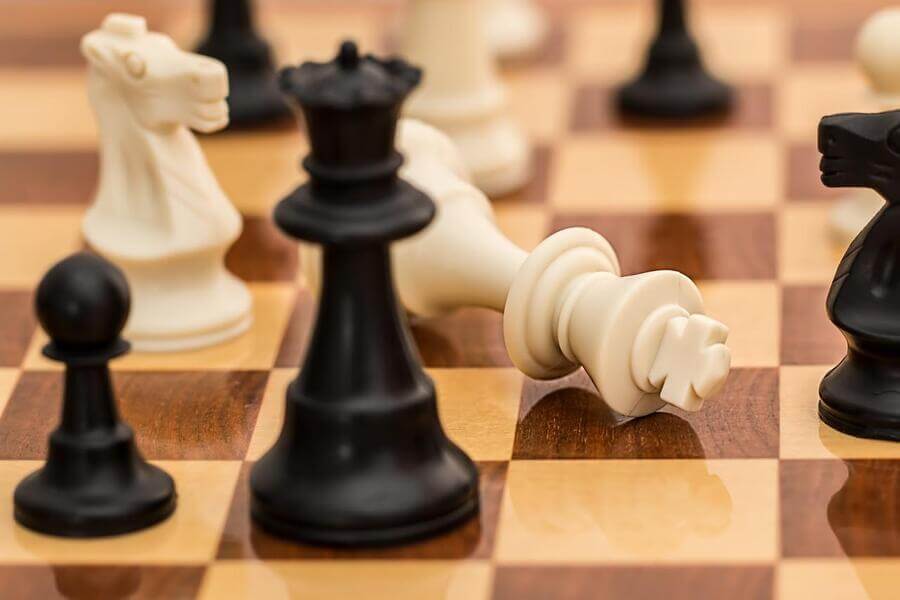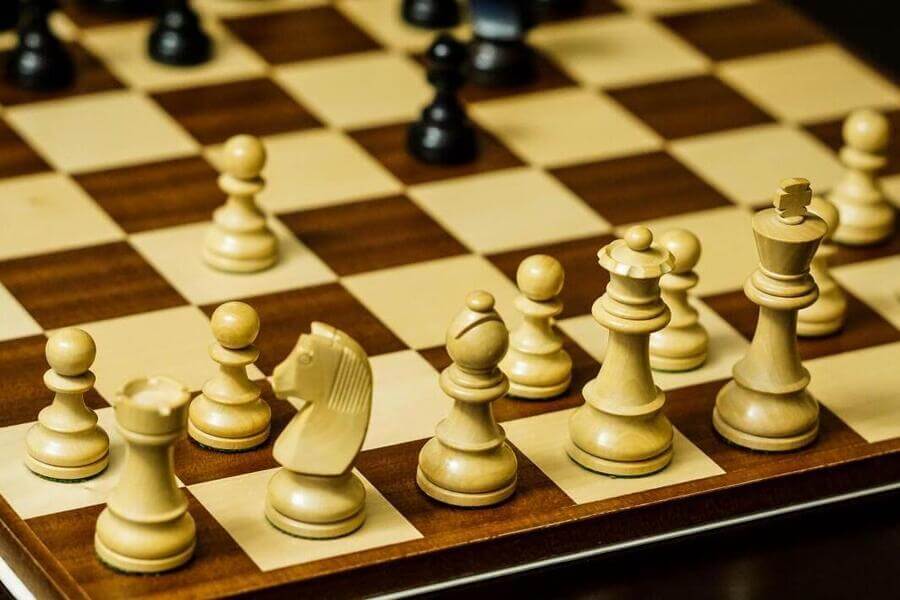No products in the cart.
Chess Rules & Instructions
How To Get Good At Chess: 7 Tips To Become A Better Chess Player
People always strive for the better. No matter if you are a beginner, an expert, or even a master, you can always improve your competencies and skills to become a stronger chess player. It will be a long journey to master the chess game, but we can take “baby steps”, once at a time. By following the instructions below, you are provided with the best strategy to get good at chess.
Table of Contents
- 1 Better At Chess Tip #1 – Practice Tactics
- 2 Better At Chess Tip #2 – Study Basic Openings & Endgames
- 3 Better At Chess Tip #3 – Think Carefully Before Making Moves
- 4 Better At Chess Tip #4 – Manage Time In A Game: Learn & Follow 20/40/40 Rule
- 5 Better At Chess Tip #5 – Play A Lot Of Games
- 6 Better At Chess Tip #6 – Review & Analyze Games
- 7 Better At Chess Tip #7 – Learn From Powerful Players
Better At Chess Tip #1 – Practice Tactics
You have probably heard of the saying “Chess is 99% tactics” by a famous chess master Richard Teichmann, but you may not have fully understood what he truly meant. In fact, there are various definitions of chess tactics. However, to make it short and clear, chess tactic is simply a single move (or a combination of moves) that may lead a player to a convincing win over his/her opponent in a game of chess. Those advantages he/she makes can be capturing a chess piece, exchanging for a more valuable piece, or even launching an attack that weakens the rival’s chess structure, consequently resulting in checkmate.
Chess pattern detection is crucial to a player’s tactical prowess. The same sort of chess position appears often in numerous tactical themes. Learn to recognize tactical chances not just when it is your turn to move, but also when it is your opponent’s turn to move. If you notice an opening of a series of moves that will bring the ultimate advantage for your opponent over you before he does, you might be able to stop him and block his attacks before he intimidates and beats the crap out of you.
You can also try solving tactics daily. While working on strategies, there are a few things to bear in mind. First and foremost, you should not devote the entire training session to it. It is entirely adequate to devote 15-20 minutes every day to this activity. Choose issues that you can solve fast. The problem is too difficult if it takes you 30 minutes to locate a single solution. Finding all of the important lines and variants should take no more than 2-3 minutes each challenge. You will be able to answer 7-10 issues every day in this manner. That is a solid starting point, and it will help you recognize plenty of different combinations that you can apply right into your chess play.
Better At Chess Tip #2 – Study Basic Openings & Endgames
When you are new to the game, you are probably not aware of the phrases “openings” or “endgames” in chess. Many people just move the chess pieces randomly, so that they might be able to capture the opponent’s pieces, or will simply not be captured and removed off the board. However, once you have gotten to know more about the chess openings and endgames, you will find that they are the decisive factors (along with tactics) which leads to fast and convincing wins towards the rivals, especially when you have reached 1500+ ELO.
The initial few moves of a chess game are often the most important. You will define your early intentions and fight for your spot on the board during those movements. Every chess player, no matter beginners or experts, should understand the fundamental concepts underlying the chess openings they play on a regular basis, such as dominating the center and developing your pieces. They do not, however, need to memorize tons of different starting moves. Most of your opponents will play something strange around move 8, thus all of your diligent “opening preparation” will be wasted.
Studying chess endgames is a tough challenge, especially to newcomers. Before you get to the end of a chess game, you have to go through the openings and middle games. And to be honest, not every player can survive all the way through the end without getting a checkmate. Even if they do, the fact that after dozens of moves, you are still able to arrange your pieces at the exact positions as the theories have mentioned is insane. If you can efficiently learn the basic knowledge of endgames, you will have great advantages over your opponent and have more chances to win the game.
Better At Chess Tip #3 – Think Carefully Before Making Moves
Avoiding incorrect movements is one of the most crucial aspects of improving your chess game. The majority of games are lost due to errors. Always double-check before moving one of your pieces to ensure that you are not giving away any pieces for free and your king is safely protected. Because in chess, there is no way for you to redo a move after you have already made one.
Better At Chess Tip #4 – Manage Time In A Game: Learn & Follow 20/40/40 Rule
Plenty of chess players have trouble with time management during chess games. For many people, moving too rapidly or too slowly is an easily overlooked issue. Regardless of the time limit, it is critical to move quickly enough to prevent running out of time, yet steadily enough to make solid decisions.
If you are struggling to manage your time during a chess game, you can try the 20/40/40 rule. This means you should spend only 20% of your time on the openings, the next 40% for the middle parts, and your last 40% of the total time on the endgames. This method helps you put your eyes on the clock, prevents the unwilling losses due to lack of time.
Better At Chess Tip #5 – Play A Lot Of Games
This is undoubtedly the most common fact that everybody who has read till here should know already. How come someone gets better at chess if they don’t play chess regularly? Nowadays, you can play chess anywhere you like and with anyone you like, from the wooden chess matches with your family at home, to competitive chess games with your friends at school during breaks, or even those online matches with strangers who enjoy playing chess all over the world.
Any newbie trying to learn the game would benefit from playing a lot of chess. It will also assist intermediate and advanced players in improving their strategies and developing game plans for the opening, middle, and endgames. For people taking part in different tournaments, players must also learn to deal with high-pressure conditions.
Better At Chess Tip #6 – Review & Analyze Games
No matter how many chess games you play, without reviewing and improving from your mistakes, you can hardly get any better. You cannot be 100% sure that all the games you played are perfect and error-free. Not anyone can, even the grandmasters like Magnus Carlsen. By studying your lost games, you will be able to figure out what went wrong and do everything you can to prevent it from occurring again in the future. It is difficult to look at your defeats, but it is the only way to improve your chess skills.
Better At Chess Tip #7 – Learn From Powerful Players
Many games that some of the most well-known chess players have created are available on the internet. Despite the fact that grandmasters use different unique chess sets in championships, their gameplay is something you can learn for free. The more you attempt to read the games, the more methods, tactics, and even odd ways of playing will become second nature to you. You will eventually learn several concepts and tactics that are nearly hard to uncover on your own.
There are a few things to keep in mind when looking through the GM games. First and foremost, go to well-annotated games and try to figure out why particular decisions were chosen. Approach the game with a proactive mindset. Put yourself in the player’s position, identify all threats, design a plan, and then compare your discoveries and analysis to the game’s events.
We can mention some of the remarkable names in the history of chess worldwide, such as Magnus Carlsen (current World Chess Champion), Garry Kasparov, Bobby Fischer, Viswanathan Anand,… Active learning is unquestionably preferable to the traditional learning methods through books or the internet.

